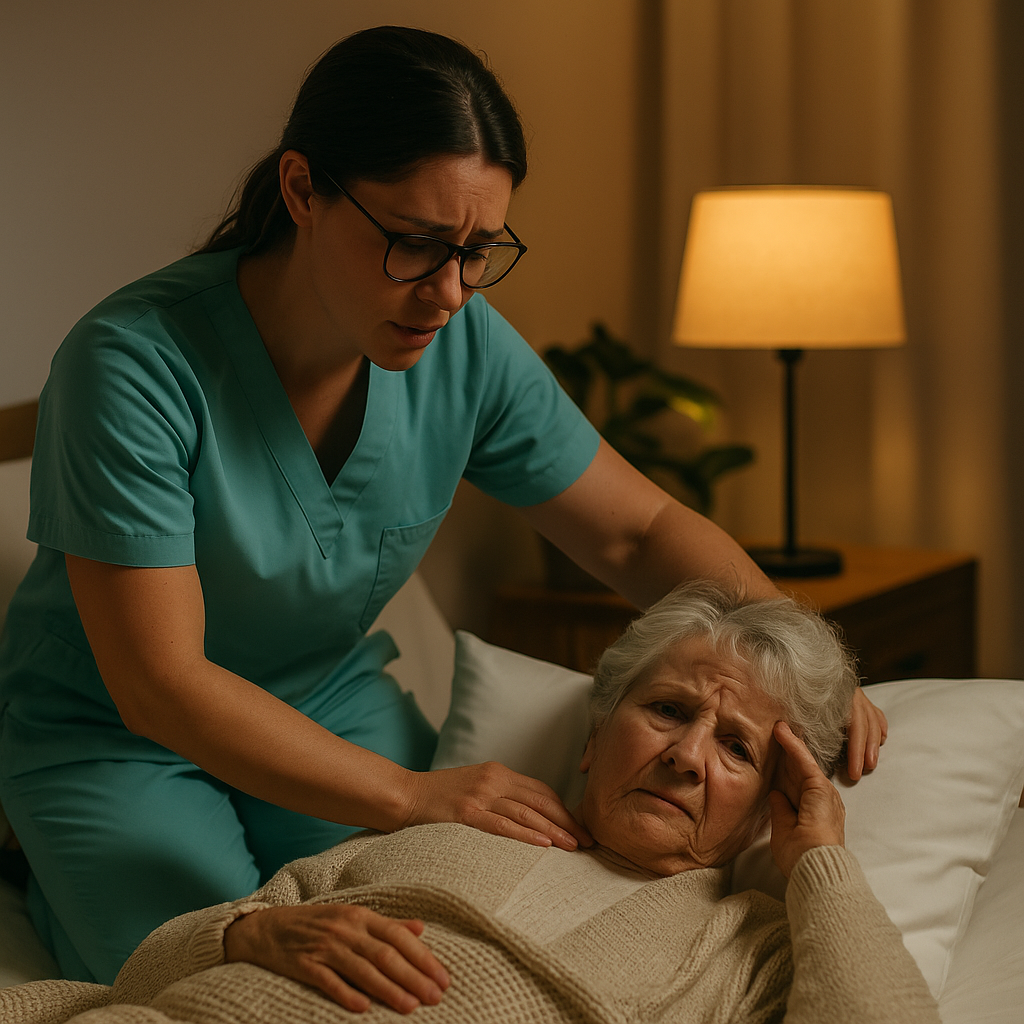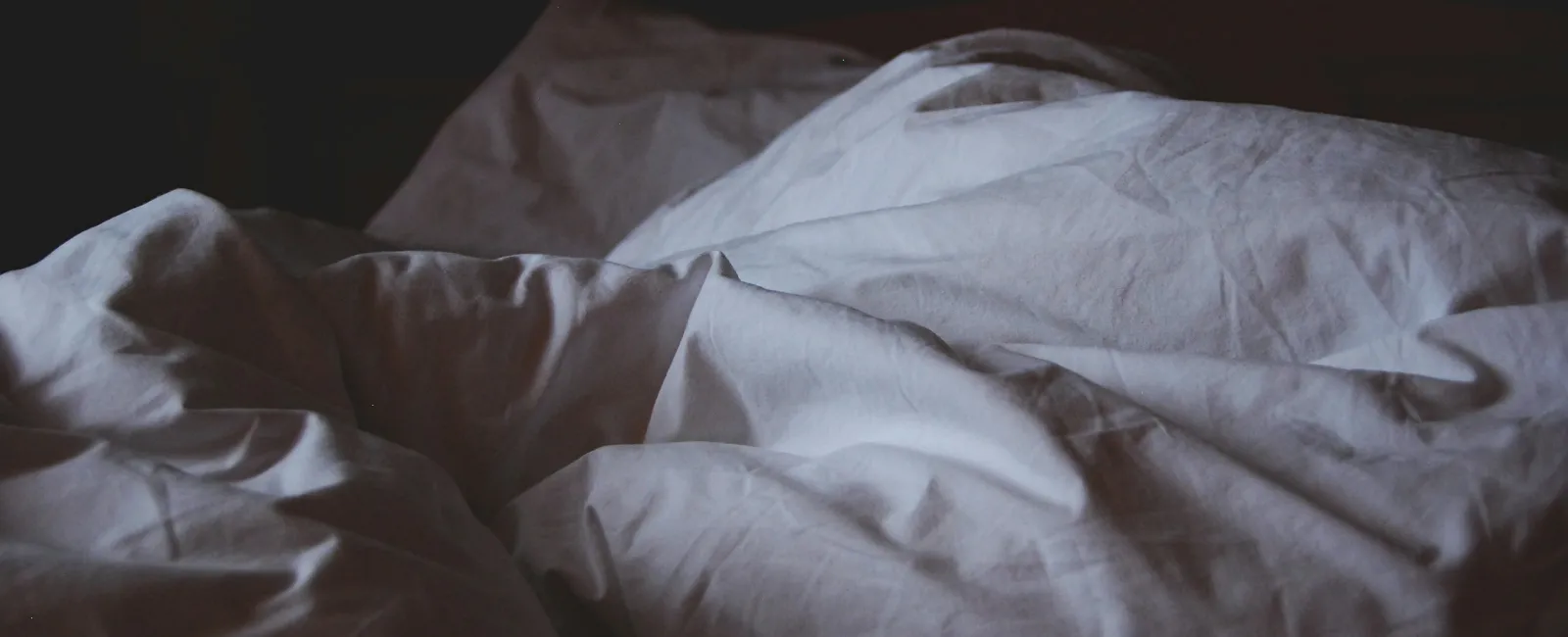Managing Nighttime Anxiety in Seniors: A Georgia Family's Guide
If your elderly parent becomes more anxious, confused, or agitated at night, you're not alone. It's something we see often at 4 Seasons Home Care—and in many cases, it's not just anxiety. It's something called sundowning.
Nighttime anxiety can make evenings stressful and unpredictable for both seniors and their caregivers. But with the right tools, support, and professional care, it doesn't have to overwhelm your family. In this guide, we'll explain what sundowning is, what causes it, and how you can create a safer, calmer nighttime routine at home right here in Georgia.
Table of Contents
What Is Sundowning?
Sundowning refers to a pattern of increased confusion, restlessness, or anxiety in the late afternoon and evening. It's most common in individuals with dementia or Alzheimer's, but can also affect older adults without a formal diagnosis. It often looks like agitation, pacing, yelling, or disorientation after sunset.
While it may seem sudden, it's usually triggered by a combination of factors—like changes in lighting, fatigue, hunger, or overstimulation from the day. Understanding the cause is the first step toward managing it well.
Signs of Nighttime Anxiety in Seniors
Not every senior shows anxiety the same way, but common signs include:
- Pacing, wandering, or trying to leave the house
- Restlessness or difficulty sitting still
- Confusion or disorientation
- Repeating questions or phrases
- Yelling, crying, or agitation
- Heightened fear, especially when left alone
If these symptoms appear consistently in the evening, it's time to explore support options.

Why Nighttime Anxiety Happens
The reasons vary from person to person, but common causes include:
- Reduced light or visual cues as the sun sets
- Fatigue or overstimulation from the day
- Unmet needs like hunger, thirst, or pain
- Side effects of medication
- Underlying memory conditions like dementia
At 4 Seasons, we often see Georgia seniors experience sundowning during seasonal changes—shorter winter days or time changes can intensify symptoms.
The Risks of Unmanaged Nighttime Anxiety
Nighttime anxiety isn't just frustrating—it can be dangerous. Seniors who are pacing or disoriented at night are at higher risk for falls, medication errors, and wandering. And family caregivers? They're often sleep-deprived, overwhelmed, and emotionally drained.
That's why nighttime support isn't just helpful—it's a necessity in certain households!
How Professional Caregivers Can Help
Hiring an overnight caregiver in Georgia can be a game-changer. Here's how:
- Maintain a consistent, calming bedtime routine
- Redirect anxious behaviors with gentle presence
- Keep the home safe and fall-proof overnight
- Provide companionship and reassurance in the dark hours
- Give family caregivers the rest they desperately need
At 4 Seasons Home Care, our overnight care plans are tailored to your loved one's specific needs, with caregivers who are trained in dementia support and nighttime supervision.
Sleep Hygiene and Soothing Routines
Caregivers can help create a calming environment that makes sundowning less likely to escalate:
- Reduce stimulation after dinner (no loud TV or screens)
- Dim the lights gradually to ease the transition to night
- Use familiar music, scents, or photos to create comfort
- Stick to a predictable bedtime schedule
- Offer a light snack or herbal tea (no caffeine!)
How Diet and Hydration Impact Evening Behavior
Dehydration, hunger, or low blood sugar can all contribute to evening confusion. Caregivers help ensure your loved one eats regularly and avoids foods that may interfere with sleep (like sugar, alcohol, or heavy meals late in the day).
They also monitor for signs of discomfort, ensuring needs are met before anxiety spirals.
Home Care vs Facility Care for Sundowning
| Factor to Consider | Home Care | Facility Care |
|---|---|---|
| Environment | Familiar home surroundings | Shared spaces, unfamiliar routines |
| Overnight Supervision | 1-on-1 care with personalized attention | Staff may be limited at night |
| Flexibility | Customized routines and care plans | Structured schedules for all residents |
| Emotional Well-being | Companionship from a familiar face | Potential isolation or disorientation |
| Fall Risk | Caregiver present to assist at night | Longer response times possible |
Get Night Time Anxiety Support for Your Family in Georgia
Nighttime doesn't have to be the hardest part of the day. At 4 Seasons Home Care, we offer professional overnight caregivers trained to help seniors feel safe, calm, and cared for—even when the sun goes down.
Reach out to us today and let's build a plan that helps your family sleep better—tonight and every night after.
